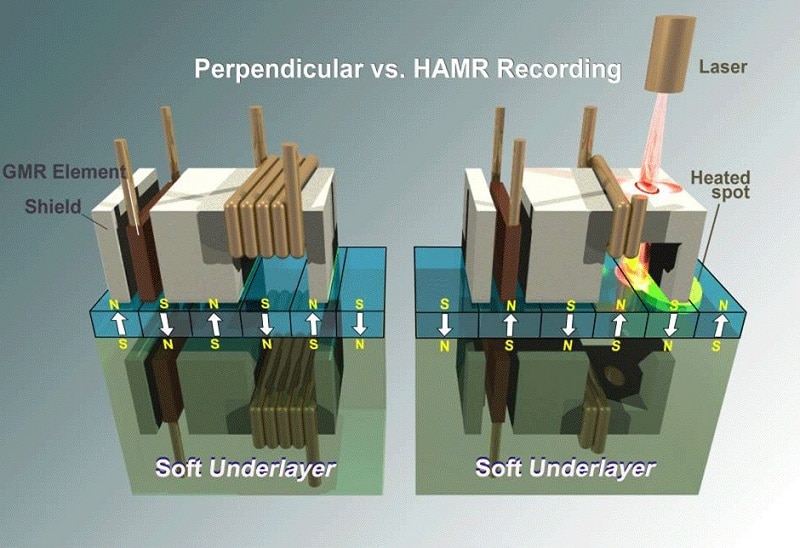First Prototype Seagate HAMR HDDs limited to 4TB
Samuel Wan / 9 years ago

Even as we transition more and more to speedy SSDs, developments are still occurring in HDD land. Having explored the limits of what is practical with Helium filled Shingled Magnetic Recording drives, Seagate is moving onto HAMR or Heat Assisted Magnetic Recording which will allow HDDs to scale beyond 16TB. Initial prototypes drives set to ship in late 2016 will be coming in a much more pedestrian 4TB though.
As HAMR is still in the early stages, the laser which provides the heat is too large, requiring more room between platters. This limits what Seagate can do until their refine the technology to ship 100TB HDDs in 2025. Both Western Digital and subsidiary HGST are working on HAMR as well and even third wheel Toshiba is planning 128TB HDDs.
HAMR changes the bit density paradigm of HDDs which currently use a strong magnetic field to flip a bit permanently on a platter. Bit density is getting harder to achieve as it gets more and more difficult to shrink the magnetic field. A magnetic field that is too large can risk flipping nearby bits and corrupting data. What HAMR does is to allow a change in platter material. Using a laser, a certain small area is heated up and a strong magnetic field applied to flip the bit. This field does not have to be small as before as the platter material won’t flip unless it hits a certain temperature. This means the bits can be as dense as the width of the laser, eliminating the issue of the magnetic field inadvertently flipping nearby bits.
For the first prototype, Seagate is starting off with an 810 nm wavelength and 20 mW power laser. This will heat up the target bit to 450c and then allow it to cool, all within 20ns. Seagate hopes to initially hit a target of 1.5 Tbits(Terabits) per square inch over the current 1 Tbits per square inch. No word yet has been released about the rpm of the prototype HAMR drive. Don’t get your hopes up about getting an HAMR drive in later 2016 as probably only certain partners will receive it.
Thank you heise for providing us with this information



















